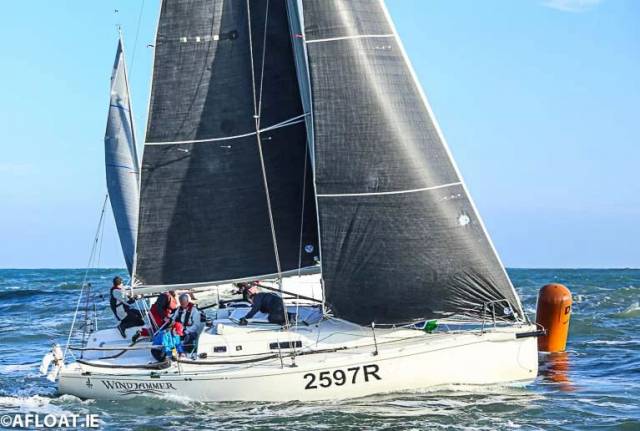Windjammer crew members were in attendance for the Round Ireland Yacht Race lecture by Kenneth Rumball and John White at the Royal Irish Yacht Club last Thursday 7 February, which also highlighted a crew overboard incident on the J97 late last month.
Video of the incident on Sunday 27 January made available by the crew themselves showed how a heavy weather practice session on Dublin Bay went awry when one of their number slipped overboard during a tack — and also their subsequent successful rescue.
The crew on the day comprised former INSS sailing instructors Aisling O’Grady, Aonghus Byrne, Andrew Irvine, Conor Corson, Jeff Fahy and Saoirse Reynolds with Lindsay Casey, one of the boat’s owners — and Noel Butler, who told Afloat.ie that Rumball and White’s presentation was not intended as a ‘how-to’ but more “a description of what happened and how [the crew] dealt with it, so that others might benefit from their experience”.
Classic Sailor reports on the video footage as “a good example of how a well-drilled and experienced crew retrieved the casualty”, and the incident has also prompted discussion on social media. Video of the full training session is available on YouTube.
Sailing in lighter airs the following weekend, Windjammer sailed into the lead in the first race of the 2019 DBSC Spring Chicken Series with Saoirse Reynolds at the helm.
Update 12 February: This article was corrected to make clear that the main subject of the RIYC lecture was on the man overboard incident on Jedi during the 2018 Round Ireland Yacht Race.
































































